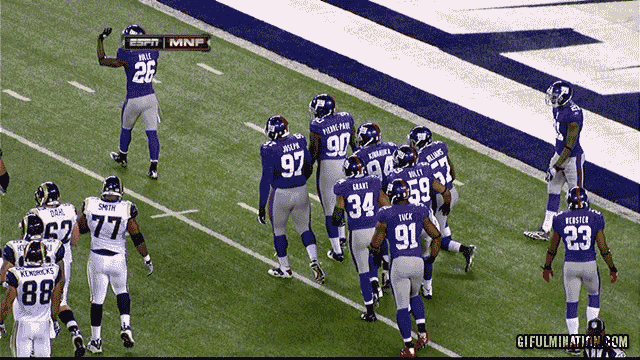http://www.pbs.org/wgbh/pages/front...ased-nfl-players-found-to-have-brain-disease/
As the NFL nears an end to its long-running legal battle over concussions, new data from the nation’s largest brain bank focused on traumatic brain injury has found evidence of a degenerative brain disease in 76 of the 79 former players it’s examined.
The findings represent a more than twofold increase in the number of cases of chronic traumatic encephalopathy, or CTE, that have been reported by the Department of Veterans Affairs’ brain repository in Bedford, Mass.
Researchers there have now examined the brain tissue of 128 football players who, before their deaths, played the game professionally, semi-professionally, in college or in high school. Of that sample, 101 players, or just under 80 percent, tested positive for CTE.
To be sure, players represented in the data represent a skewed population. CTE can only be definitively identified posthumously, and many of the players who have donated their brains for research suspected that they may have had the disease while still alive. For example, former Chicago Bears star Dave Duerson committed suicide in 2011 by shooting himself in the chest, reportedly to preserve his brain for examination.
Nonetheless, Dr. Ann McKee, the director of the brain bank, believes the findings suggest a clear link between football and traumatic brain injury.
“Obviously this high percentage of living individuals is not suffering from CTE,” said McKee, a neuropathologist who directs the brain bank as part of a collaboration between the VA and Boston University’s CTE Center. But “playing football, and the higher the level you play football and the longer you play football, the higher your risk.”
An NFL spokesman did not respond to several requests for comment.
CTE occurs when repetitive head trauma begins to produce abnormal proteins in the brain known as “tau.” The tau proteins work to essentially form tangles around the brain’s blood vessels, interrupting normal functioning and eventually killing nerve cells themselves. Patients with less advanced forms of the disease can suffer from mood disorders, such as depression and bouts of rage, while those with more severe cases can experience confusion, memory loss and advanced dementia.
Among the NFL legends found to have had CTE are Duerson, Hall of Fame Pittsburgh Steelers center Mike Webster and former San Diego Chargers legend Junior Seau. On Monday, ESPN’s Outside the Lines reported that a New York neuropathologist had discovered signs of CTE in the brain of Jovan Belcher. In 2012, the former Kansas City Chiefs linebacker shot and killed his girlfriend before driving to a Chiefs practice facility, where he committed suicide in front of team officials.
The new data from the VA/BU repository — once the “preferred” brain bank of the NFL — comes as thousands of NFL retirees and their beneficiaries approach an Oct. 14 deadline to decide whether to opt out of a proposed settlement in the class-action concussion case brought against the league by more than 4,500 former players.
The research helps address what had been a key sticking point in negotiations — the issue of prevalence. Players in the lawsuit have accused the league of concealing a link between football and brain disease. While the settlement includes no admission of wrongdoing, actuarial data filed in federal court this month showed the NFL expects nearly a third of all retired players to develop a long-term cognitive problem, such as Alzheimer’s disease or dementia, as a result of football.

